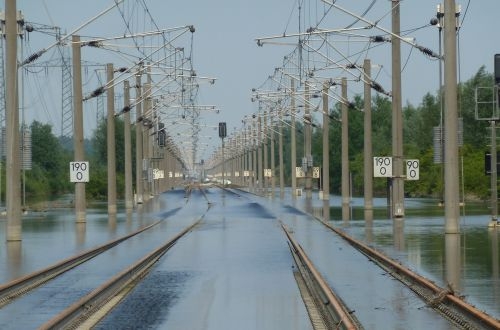DB says the fall was the result of higher costs, especially for personnel and energy expenses, as well as the consequences of the floods in north and eastern Germany last summer and other instances of poor weather which had a detrimental effect on services.
Despite a significant increase in long-distance passengers in the first half of the year, line closures and delays to journeys in the months following the floods meant that DB transported 131 million passengers on these services in 2013, which was constant with 2012.
Overall demand for track capacity in Germany fell slightly to 1 billion train-path km, with DB Schenker railfreight traffic falling by 1.5% to 104.3 billion tonne-km, despite a 2% increase rail traffic across DB's train operating subsidiaries to 24%. The railway's overall net investment fell by €75m to €3.4bn, while net-debt was constant at €16.4bn.
DB CEO Dr Rüdiger Grube says that "the economy was in many places worse than expected which manifested itself in our transport and logistics business," while CFO Dr Richard Lutz says the numbers are not satisfactory." However, he added that "current trends indicate that conditions could pick up again later this year."
Indeed DB was buoyed by increases in ridership on suburban and regional services which enabled the railway to transport a total of 2.02 billion passengers in 2013, an increase of 42 million from the previous year. Grube says that new car registrations and traffic on domestic flights is down in Germany indicating that the "general mobility trends clearly favour the train."
He also reported encouraging progress on DB's 2020 strategy, including by creating 11,000 new jobs in Germany last year as well as the addition of 4000 new apprentices. DB also met a target to source 35% of its energy from renewable sources by the end of the year, seven years earlier than planned.

